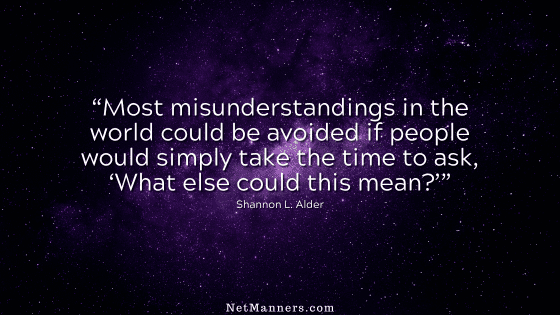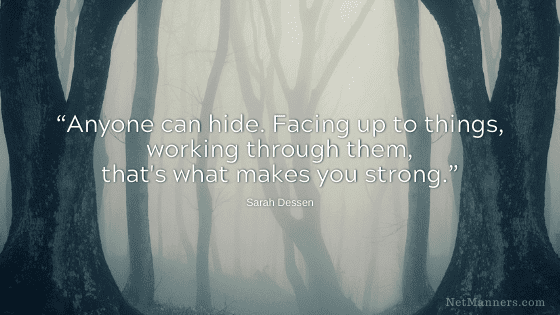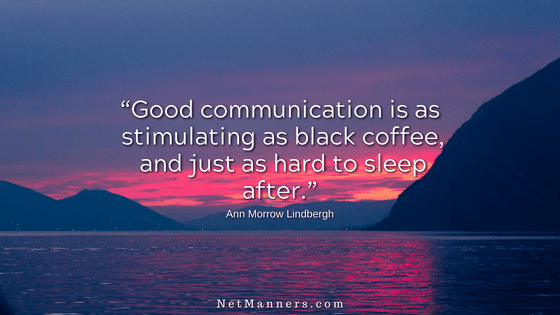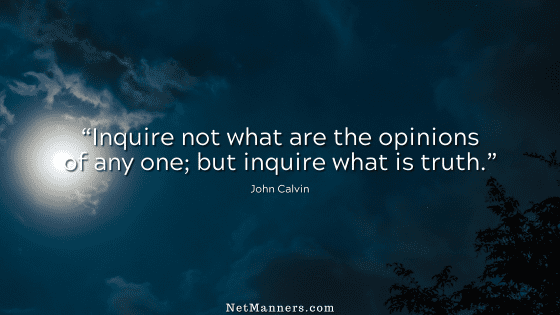Look To Yourself Before You Accuse Others

Misunderstandings are common in emails, texts, and online forums. Why? Combine the all too often vague author with the reader’s interpretation of the written text. So, let’s run through some trains of thought on handling this situation that everyone has to deal with at one point or another.
Incorrect Perception?
The short answer is to reply with courtesy and curiosity. By that, I mean be nice and ask questions if you are unsure of the intent of their message. You’ll never go wrong with this approach. (If this happens with your business communications, check out my business-focused website, BusinessEmailEtiquette.com.)
When I don’t understand something or if something seems wrong, incorrect, a problem, or “broken,” I double-check that my actions or lack of knowledge are not leading to that erroneous perception. Having worked in technology all my life, I am very aware of how much, even after all this time, I don’t know. So, I check myself first.
I’ve received demanding emails like the one mentioned above, and I wonder what’s with the attitude. For example, occasionally, someone who doesn’t appreciate my point of view requests that I make corrections to reflect their viewpoints. That’s legit, but making your point with courtesy tends to be more meaningful.
Don’t get me wrong; I am happy to add another perspective if it’s valid. I love feedback and take any I receive into consideration. But not from bullies or those who email an email etiquette website and do not use proper sentence structure.
Or I received an email claiming something is “wrong” with my site and that I must fix it. No further details were provided. In this situation, if you get any error messages (browser, desktop, cell, software), always copy that error message. That will help others help you.
In the most recent case, turning off their VPN solved the issue. (If you use a VPN and get “site can’t be reached” error messages — turn off your VPN. Google, for example, is notorious for identifying a VPN that may block their ad tracking.)
You will encounter these situations if you have a blog or are active online. So, if you aren’t sure what’s up, regardless of which side you are on, relay your commentary with curiosity and courtesy.
Humility is a Virtue
I know I do not know everything; I am all too aware of how much I don’t know. With that perspective, you’ll never have a problem getting help or helping others. Try not to assume — and know you’ll never know it all.
Everyone needs more humility. That said, you will encounter bullies online, especially on forums. Remember, there is no reason to engage with people who communicate that way.
Safely Hiding Behind These Screens…
When I receive a nasty and accusatory email in which the sender makes incorrect statements, my response tries to de-escalate further aggression. Situations such as this are teachable moments, and I never respond to a lack of tact with the same. Kill them with kindness, as the saying goes.
Most folks reply with gratitude and an apology. This latest individual did not. Crickets.
There is no need to be nasty and accusatory out of the gate, regardless of which side you are on. How about a nice “I was wondering if you could help me understand why…” to find out what one doesn’t know before assuming?
The Moral of The Story Is…
If you think something is amiss, email with curiosity and courtesy first. Start with a nice and humble inquiry about what you perceive is happening, placing no blame or making any accusations. This approach will increase your chances of receiving the response you are looking for.
The same applies when you receive demanding emails. If you are unsure of the intent or meaning, just ask for clarification first.
With this approach, you may discover you were incorrect in your perception, save face, and probably learn something new in the process. Win-win, right?






